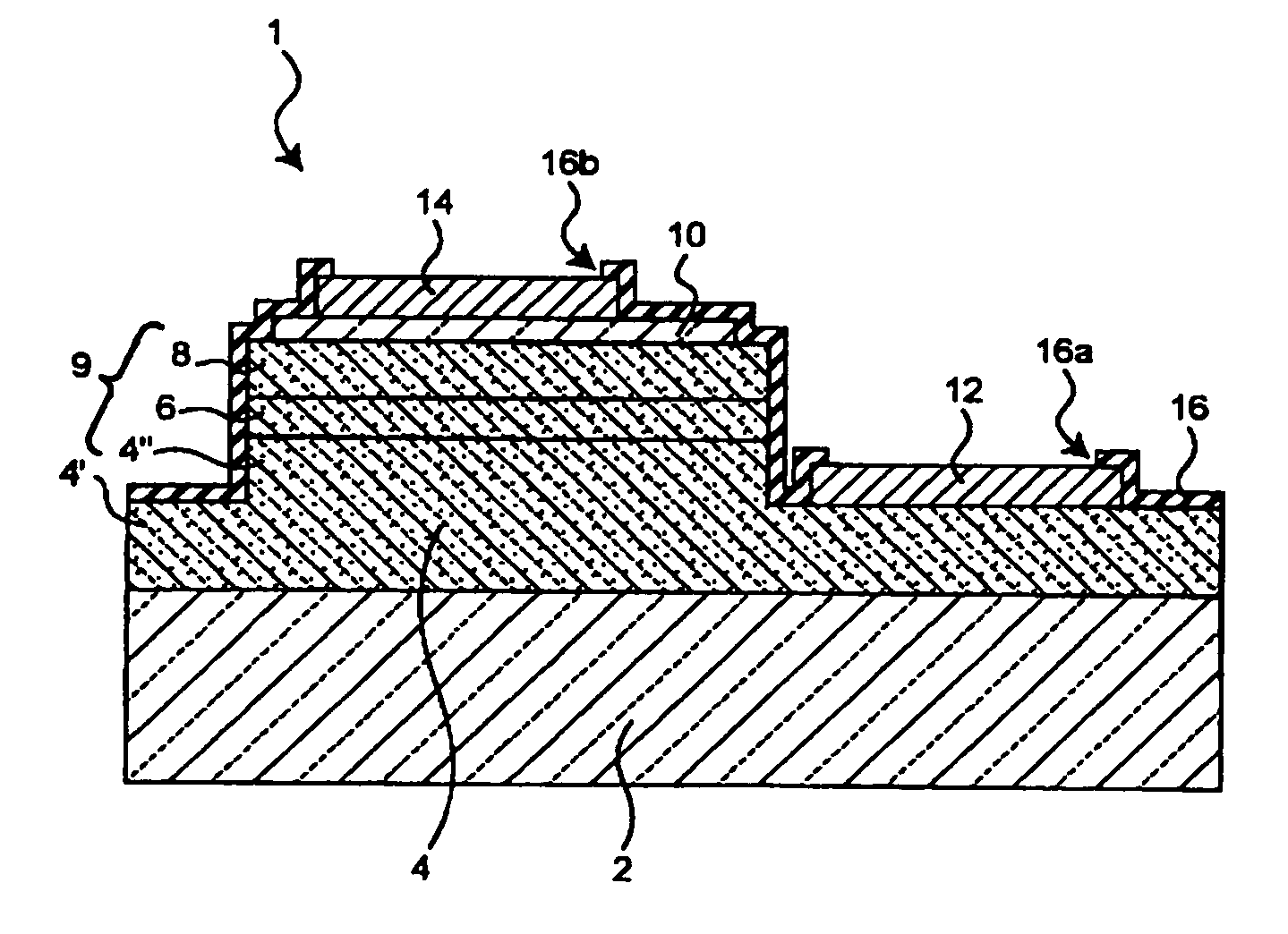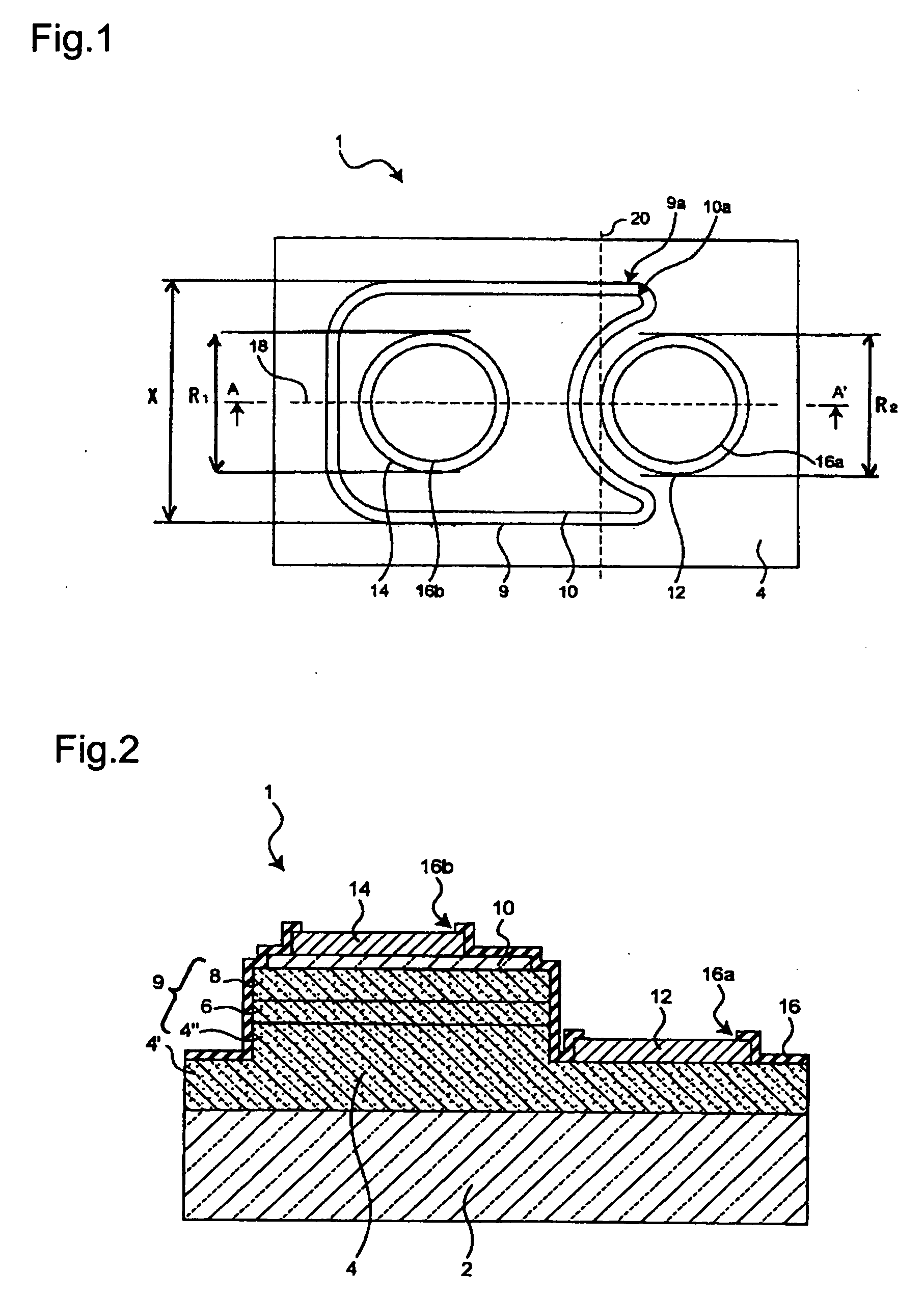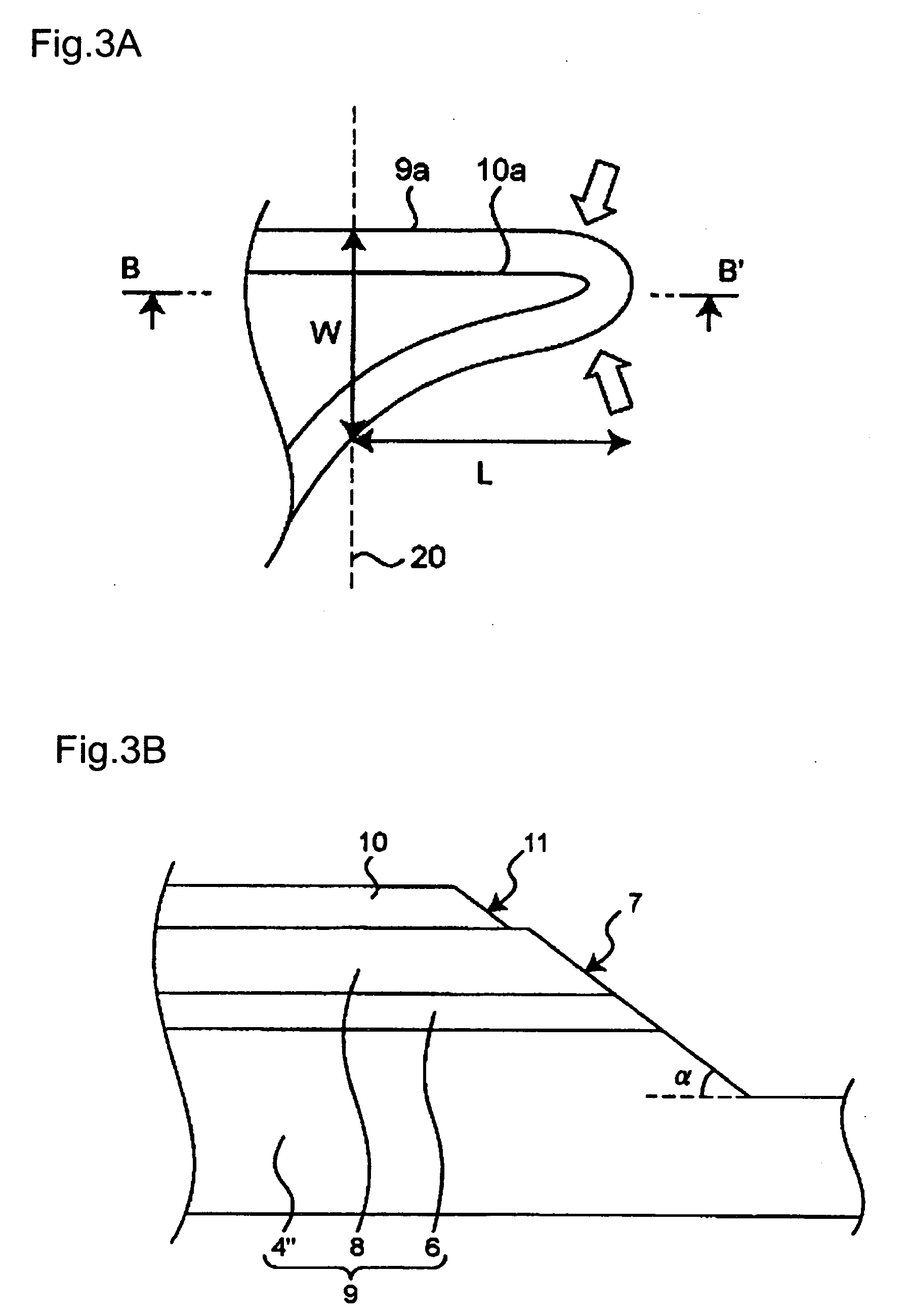Nitride semiconductor light emitting device
- Summary
- Abstract
- Description
- Claims
- Application Information
AI Technical Summary
Benefits of technology
Problems solved by technology
Method used
Image
Examples
embodiment 1
[0055]FIG. 1 is a top view of a nitride semiconductor light emitting device according to the first embodiment of the present invention, and FIG. 2 is a sectional view thereof. As shown in FIG. 2, the nitride semiconductor light emitting device 1 comprises an n-side nitride semiconductor layer 4, an active layer 6 and a p-side nitride semiconductor layer 8 formed successively on a substrate 2 made of sapphire, SiC, Si, GaN or the like, and has double hetero-junction structure. A light transmitting electrode 10 is formed from ITO or thin metal film over substantially the entire surface of the p-side nitride semiconductor layer 8, and a p-side pad electrode 14 is formed on the light transmitting electrode 10 for the connection with an external circuit by wire bonding or the like.
[0056] On the other hand, to form an n-side pad electrode 12, top portions 4″ of the p-side nitride semiconductor layer 8, the active layer 6 and the n-side nitride semiconductor layer are removed so as to exp...
embodiment 2
[0100] This embodiment is similar to Embodiment 1 except that the substrate 2 is separated by laser scribing.
[0101] Laser scribing is a method of forming separation grooves by means of laser beam. After forming the separation grooves by means of laser beam, the substrate can be separated into individual chips. Laser scribing is capable of forming a deeper and narrower groove than other methods such as dicing. This enables it to decrease the proportion of the substrate surface area occupied by the grooves so as to increase the number of chips that can be produced from one substrate. In addition, the deeper separation groove decreases the possibility of breaking failure. Thus laser scribing is suited for separating small chips.
[0102] In this embodiment, laser scribing is employed for separating the nitride semiconductor light emitting device described in Embodiment 1. This not only increases the number of chips that can be produced from one substrate and improves the yield of produc...
embodiment 3
[0113]FIG. 10 is a top view showing a nitride semiconductor light emitting device according to Embodiment 2 of the present invention. This embodiment is similar to Embodiment 1 except for those described below.
[0114] In this embodiment, the n-side pad electrode 12 is formed at a position near a corner of the chip, while the p-side layer 9 extends along one side face of the n-side pad electrode 12. Assuming the centerline 18 that connects the center of the p-side pad electrode 14 and the center of the n-side pad electrode 12 and the tangent line 20 of the n-side pad electrode 12 that crosses the centerline 18 at right angles, then the extension of the p-side layer 9 is located on the side of the tangent line 20 opposite to the n-side pad electrode 14. As a result, intensity of light emission in the extension of the p-side layer 9 tends to become lower, and the decrease in intensity of light emission is more conspicuous in the distal end portion 22. In this embodiment, therefore, the...
PUM
 Login to View More
Login to View More Abstract
Description
Claims
Application Information
 Login to View More
Login to View More - R&D
- Intellectual Property
- Life Sciences
- Materials
- Tech Scout
- Unparalleled Data Quality
- Higher Quality Content
- 60% Fewer Hallucinations
Browse by: Latest US Patents, China's latest patents, Technical Efficacy Thesaurus, Application Domain, Technology Topic, Popular Technical Reports.
© 2025 PatSnap. All rights reserved.Legal|Privacy policy|Modern Slavery Act Transparency Statement|Sitemap|About US| Contact US: help@patsnap.com



